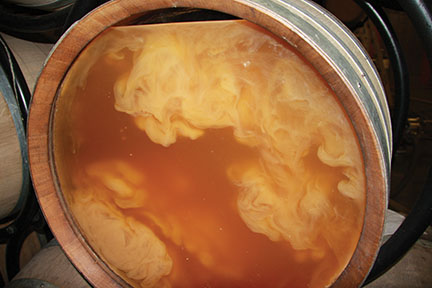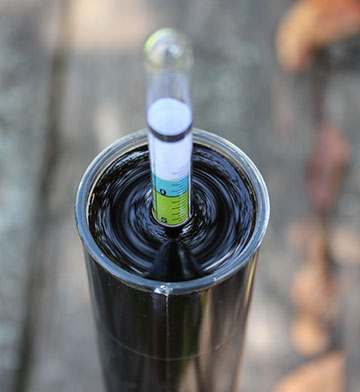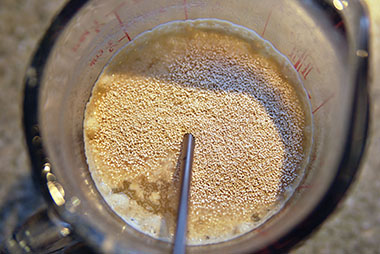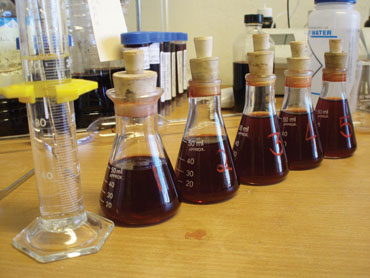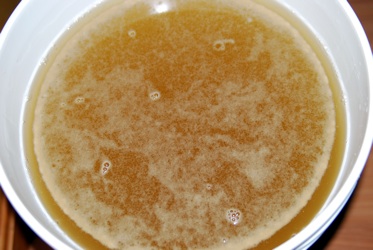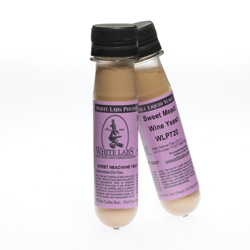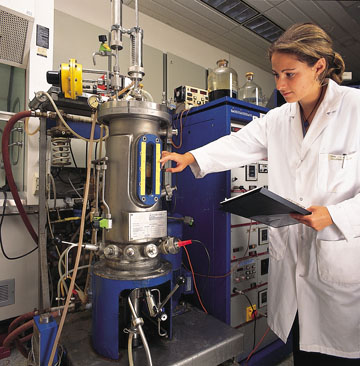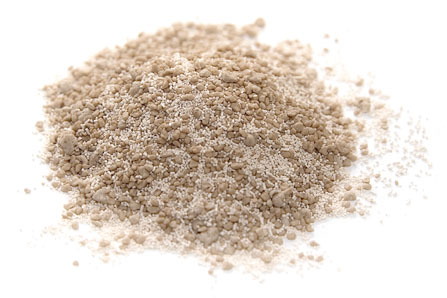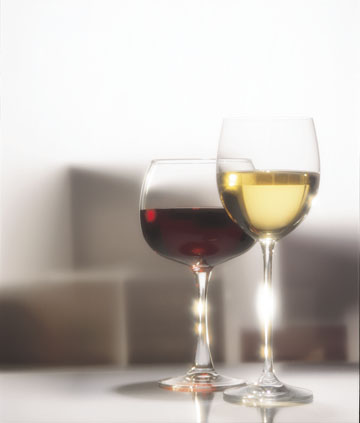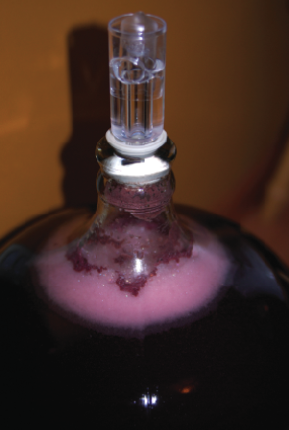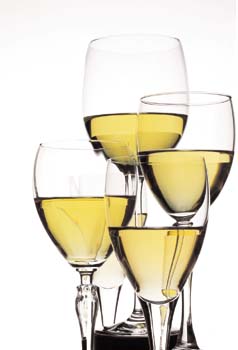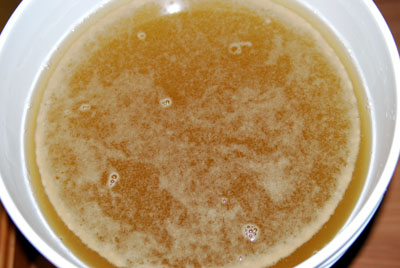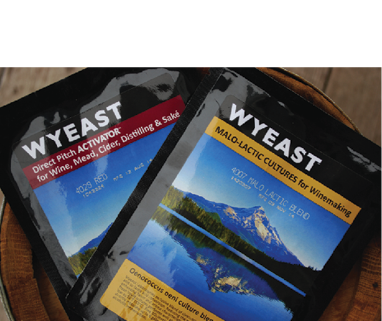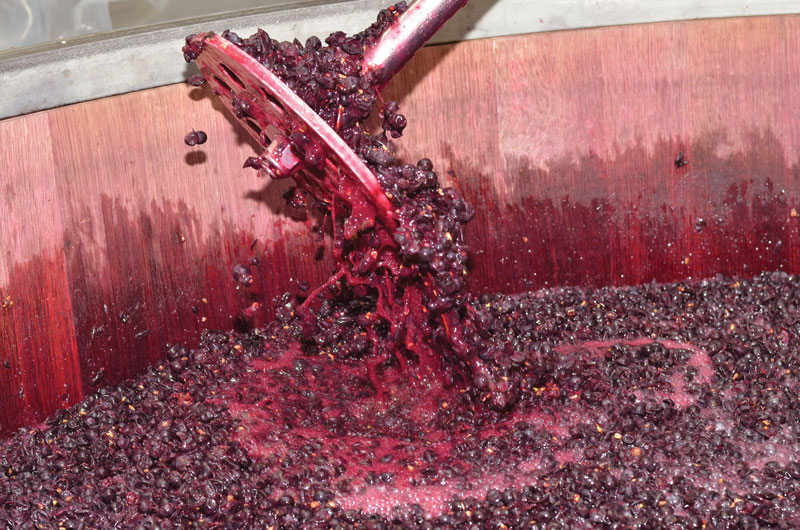Topic: Yeast
Sur Lie Aging & Bâttonage
An introduction to sur lie aging and why you may want to consider it for your next batch.
Restart Stuck Fermentations
All home winemakers wish — and strive — for fermentations that go smoothly and completely to the desired finish, usually dry wine. When things go wrong, a frequent problem is a stuck
Special Purpose Wine Yeasts
Yeast are fairly simple, single-celled organisms. But their diversity, functionality, and ability to adapt is why humans, and especially winemakers love these fungi so much. Bob Peak takes us through several strains that winemakers should know are available.
How Wine Yeast Works
In addition to alcoholic fermentation, the yeast used to ferment wine also metabolize other substances into byproducts. Learn more about how wine yeast works.
What To Consider When Selecting A Yeast
Ah that is a wonderful and complex question. When a winemaker chooses to inoculate for fermentation (which I generally recommend) there are many factors to take into account when making that choice.
Using Yeast Nutrients
One of the most important conditions for your yeast to thrive is an abundance of nutrients. If the must doesn’t provide enough naturally, it’s time to add yeast nutrients. Use these tips to know when it’s time to add nutrients, and what types your yeast need to complete a successful fermentation.
Wild Fermentations
Well, I would’ve inoculated right off the bat if I didn’t see anything happening within 24 to 48 hours. Contrary to popular belief, yeast cells that can carry out a complete alcoholic
Selecting Yeast Roundtable
For tips on selecting the best strains to get the job done, we asked four experts with various wine and yeast-related backgrounds to give us a hand.
Yeast Trials With Wine Kits
Just because your wine kit comes with a certain yeast, that doesn’t mean you can’t experiment with other options.
Understanding Yeasts
Without yeast, there can be no wine. But the role of wine yeast goes well beyond alcoholic fermentation — the biochemical process of converting sugar into ethyl alcohol and carbon dioxide. Yeast
Choosing A Wine Yeast Strain
Yeast selection is one of the most important winemaking decisions as the chosen yeast strain is, to a large extent, what shapes the wine, influences organoleptic (sensory) qualities, and reduces the risk
I recently inadvertently added the wrong yeast to a new batch of frozen Chardonnay juice.
I’m glad you wrote in this question. It points to the importance of thinking about our wines in the big picture sense. Decisions we make in the beginning can affect what decisions
Liquid Yeast for Home Winemakers
When most people think of a great wine and what sets it apart from other wines, they typically look to the usual suspects: grape variety and quality, composition of the grape must,
Country Wine Yeast: Tips from the Pros
Dominic Rivard is a consultant fruit winemaker producing commercial wines in Asia, North America and Europe and author of “The Ultimate Fruit Winemaker’s Guide” at www.fruitwineguide.com. A qualified sommelier, Dominic studied winemaking
Wine Wizard Revealed & Top 10 Winemaking Questions
A Word From the Publisher And the Wine Wizard is……. “When will my fermentation stop?” “Why did my fermentation stop?” One thing I can count on as publisher of WineMaker magazine is
How Yeast is Made
Home winemaking continues to gain in popularity. The quality of wines kits has greatly improved over the past several years and, as a consequence, the first experience of many folks curious about
What the Pros Think When They Choose Yeast
According to academics and professionals, if you want to pick the right yeast for your grape juice, knowing what questions to ask is essential. “I view it more as not who do
How Kit Manufacturers Choose Yeast
Wine yeast — or Saccharomyces, which is Latin for ‘sugar-fungus’ — converts sugar into alcohol. While alcoholic fermentation is the most important aspect of winemaking, yeast does more than just bubble out
Wild Yeast: The Pros and Cons of Spontaneous Fermentation
Making wine with wild yeast has been a source of debate for many because of its unpredictable nature. Should you make your wine from wild yeast or cultured yeast? This article will provide some insight to help you make an informed decision.
Same Grape. Different Yeasts
The sensory profile of a wine is its calling card, its résumé and its history. The quality of a wine, and its ability to leave a lasting imprint in our memory, is
If a yeast packet says it makes 1–5 gallons (3.8–19L) of wine, what would be the difference between using it for 1 gallon or for 5?
If you use a 1-5 gallon (3.8–19 L) yeast packet for 1 gallon as opposed to 5 gallons, it is likely that your fermentation will proceed faster, have a more yeasty aroma
Picking the Proper Wine Yeast: Tips from the Pros
Stephen Smith attended wine appreciation classes at Denver University in 1982–84, winemaking seminars at the New Mexico Wine and Vine Society in Albuquerque from 1984 to the present, and extension courses at
The Strain Game
You need to select the right kind of yeast for the style of wine you want to make. Yet choosing the proper yeast should not be a daunting task — with proper planning it’s easy to achieve the desired results.
I did not rehydrate my yeast before I pitched it. How do I do this and what happens if I don’t?
Dear Wine Wizard, I did not rehydrate my yeast before I pitched it. How do I do this and what happens if I don’t? John Eastwood Cleveland Wine Wizard replies: Rehydrating yeast
What is the shelf life for dry yeast? Is there anything I can do to revive it and will it work?
Your yeast packet is almost guaranteed to be past its prime. Yeast cells, even those that have been freeze-dried, certainly do have an expiration date. Using yeast that is more than six
